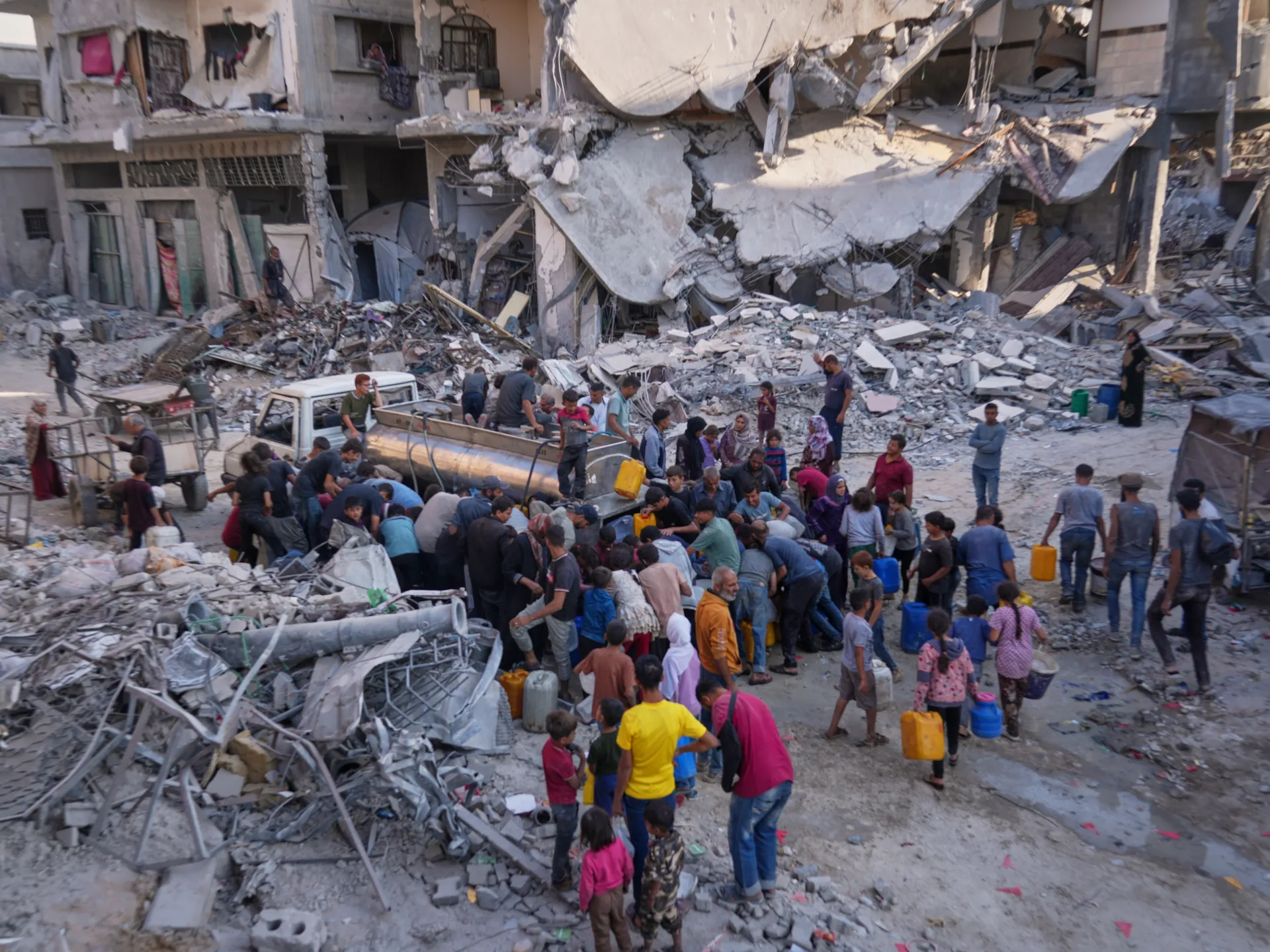Published On 17 Oct 2025
Palestinians in Gaza continue to suffer a harsh daily struggle to access food, water, and essential medical supplies one week into the ceasefire agreement as Israel heavily restricts the flow of aid into the war-devastated enclave, contravening the deal.
UNICEF spokesperson Tess Ingram told Al Jazeera that Palestinians in northern Gaza are in “desperate need” of food and water as thousands have returned to total destruction.
Speaking to Al Jazeera from the al-Mawasi area in the south of the Gaza Strip, Ingram said that in order to scale up humanitarian aid deliveries, multiple crossings into the enclave must be opened.
“The stakes are really high,” she said. “There are 28,000 children who were diagnosed with malnutrition in July and August alone, and thousands more since then. So, we need to make sure it’s not just food coming in, but malnutrition treatments, as well.”
While maintaining that humanitarian aid should never become political leverage, Ingram highlighted that assistance to Gaza has been severely constrained for two years, with United Nations agencies sidelined.
“This [ceasefire] is our opportunity to overcome all of that, to turn it right. That is why Israel has to open all of the border crossings now, and they have to let all of the aid into the Gaza Strip at scale alongside commercial goods,” she said.
Israel’s military aid agency COGAT on Thursday announced plans to coordinate with Egypt for reopening the Rafah crossing for civilian movement once preparations conclude. However, COGAT specified that Rafah would remain closed for aid deliveries, saying this wasn’t stipulated in the truce agreement. All humanitarian supplies must instead pass through Israeli security inspections at the Karem Abu Salem crossing, known to Israelis as Kerem Shalom.
With famine conditions already present in parts of Gaza, UN Under-Secretary-General Tom Fletcher indicated thousands of aid vehicles weekly are required to address the humanitarian crisis.
Despite some aid trucks entering Gaza on Wednesday, medical services remain severely limited and the majority of Gaza’s 2.2 million residents are now homeless. Ismail al-Thawabta, head of the Hamas-run Gaza media office, characterized recent aid deliveries as merely a “drop in the ocean”.
Israeli military operations have devastated much of the densely populated territory, with Gaza health authorities reporting nearly 68,000 Palestinian deaths.
Samer Abdeljaber, the World Food Programme’s regional director, stated the UN agency is utilising “every minute” of the ceasefire to intensify relief operations.
“We are scaling up to serve the needs of over 1.6 million people,” Abdeljaber said in a social media video, noting WFP’s plans to activate nearly 30 bakeries and 145 food distribution points.
“This is the moment to keep access open and make sure the aid keeps flowing,” he said.
